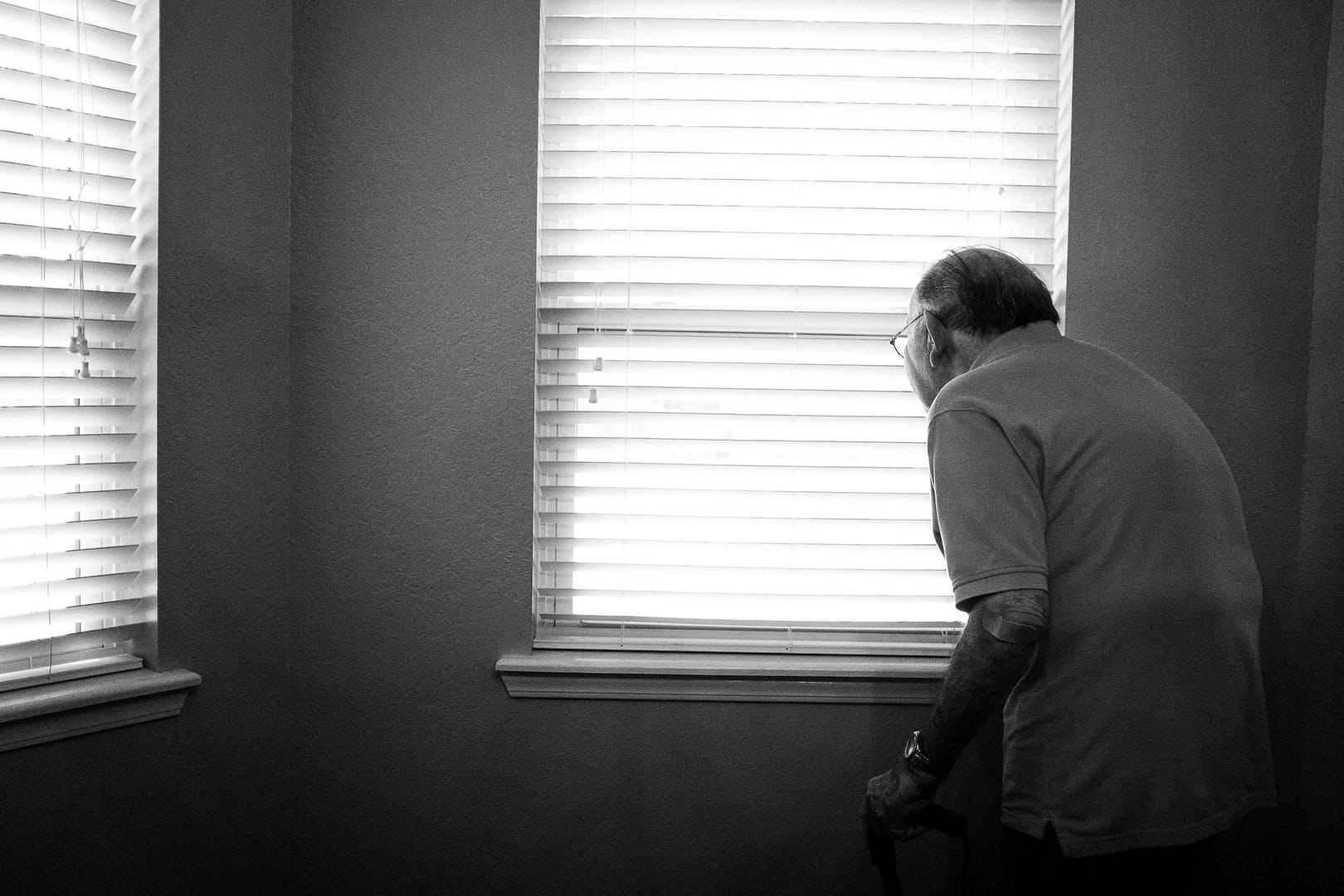In today’s ever-changing housing landscape, a growing demographic is facing unique challenges that require our attention and empathy. The keyword “Why older tenants are more vulnerable” encapsulates a complex issue that demands a closer look. Ageing populations across the globe are experiencing the shifting dynamics of homeownership, opting for renting instead. This shift raises questions about the vulnerabilities older tenants face and the reasons behind their decision to rent rather than own a home. In this article, we will delve into the intricacies of this phenomenon, exploring how age affects housing choices and the potential pitfalls that older tenants may encounter in the process. We will also highlight the best practices when making a housing disrepair claim.
The Changing Face of Homeownership
Over the years, the concept of homeownership has evolved. Traditionally, owning a home was a symbol of financial stability and security, a place where families put down roots and built their futures. However, the landscape has shifted considerably. In many parts of the world, including the UK, a significant portion of older individuals are choosing to rent rather than buy. This shift has given rise to a pressing question: Why are more older people renting?
The Financial Realities
One of the primary reasons older individuals are increasingly opting to rent is the financial reality they face. As people age, their income dynamics change. Retirement often leads to a fixed income, which may not be sufficient to cover the costs associated with homeownership. Mortgage payments, property taxes, and maintenance expenses can be daunting for those living on a pension or fixed retirement income. Renting, on the other hand, offers more predictable and manageable monthly costs.
Flexibility and Downsizing
Another factor that drives older individuals towards renting is the desire for flexibility and downsizing. As children grow up and move out of the family home, many older individuals find themselves in houses that are too large for their needs. Maintaining a spacious property can be both physically and financially demanding. Renting a smaller, more manageable apartment or a retirement community unit provides the flexibility to adapt to changing life circumstances and eliminate the burden of maintaining a large property.
The Appeal of Retirement Communities
Retirement communities have become increasingly popular among older individuals seeking a supportive and social environment. These communities often offer amenities such as healthcare services, social activities, and communal living spaces, making them an attractive alternative to traditional homeownership. Renting within a retirement community allows older tenants to access these benefits without the responsibilities of property ownership.
How Age Affects Housing Choices
Age plays a significant role in influencing housing choices. As individuals grow older, their priorities and needs shift, leading them to make decisions that may not align with the conventional path of homeownership.
Physical Limitations
One crucial aspect is the physical limitations that come with ageing. Older tenants may face mobility issues, making it challenging to maintain a house and yard. Stairs can become obstacles, and general home upkeep can become increasingly difficult. Renting a property with accessibility features or opting for a single-story apartment can mitigate these challenges.
Health Considerations
Health concerns also play a pivotal role in shaping housing decisions. As people age, they may require specialised healthcare services or need to be closer to medical facilities. Renting near healthcare providers or within retirement communities that offer healthcare assistance can be a vital consideration for older tenants.
Social Factors
Social factors are equally important. Older tenants may prioritise proximity to family and friends, leading them to choose rental properties that are closer to their support networks. Staying connected with loved ones becomes increasingly crucial in later years, and housing choices often reflect this need.
Financial Stability
Financial stability evolves with age. While younger individuals may focus on building equity through homeownership, older tenants may prioritise having a stable and predictable housing situation. Renting can offer this stability, as it allows individuals to plan for their housing costs with more certainty.
The Vulnerabilities of Older Tenants
While the decision to rent can provide several advantages to older individuals, it also exposes them to specific vulnerabilities. These vulnerabilities stem from various sources, including housing discrimination, limited housing options, and potential financial challenges.
Housing Discrimination
Age-related discrimination can be a harsh reality for older tenants. Landlords may harbour biases against older renters, assuming they are less financially stable or less likely to maintain the property properly. Such prejudices can result in limited housing options for older tenants, making it more challenging for them to find suitable and affordable accommodations.
Limited Housing Options
Limited availability of suitable housing is another challenge faced by older tenants. As more older individuals choose renting over homeownership, the demand for rental properties tailored to their needs has increased. Unfortunately, the supply of such properties has not kept pace with demand. This supply-demand gap can lead to higher rental prices and fewer choices for older tenants.
Financial Challenges
While renting can offer financial stability, it also poses financial challenges for older individuals. Rent payments can consume a significant portion of a fixed retirement income, leaving less room for other essential expenses such as healthcare, food, and transportation. This financial strain can make older tenants more vulnerable to economic shocks or unexpected expenses.
Making a Housing Disrepair Claim with National Claims
At National Claims, we understand the importance of ensuring that all tenants, including older individuals, have safe and comfortable living conditions. Our mission is to assist tenants in addressing housing disrepair issues and improving their quality of life. Here’s how we can help:
Note: You can only make a claim if you are currently living in social housing.
Identifying Housing Disrepair
The first step in making a housing disrepair claim is identifying the issues that require attention. Common housing disrepair problems faced by older tenants may include dampness, mould, faulty heating systems, plumbing issues, and structural problems. Our team of experts can assess your situation and determine the extent of disrepair.
Contacting Your Landlord
Once we’ve identified the housing disrepair issues, we will communicate with your landlord or property management company on your behalf. We will formally notify them of the problems and request prompt repairs. Our goal is to ensure that your concerns are taken seriously and that your landlord takes appropriate action to address the issues.
Legal Support
If your landlord fails to respond or refuses to make necessary repairs, we can provide legal support to protect your rights as a tenant. Our experienced claims specialists will guide you through the claims process, helping you pursue a housing disrepair claim and seeking compensation for any damages or inconvenience you have suffered.
Ensuring a Safe and Healthy Living Environment
Our ultimate aim is to ensure that you have a safe and healthy living environment. We understand that older tenants may be more vulnerable to the adverse effects of housing disrepair, such as respiratory issues or increased stress. National Claims is committed to helping you achieve a resolution that improves your living conditions and quality of life.

Conclusion
In the ever-evolving landscape of housing, older tenants are facing a unique set of challenges and vulnerabilities. Their decision to rent instead of owning a home is influenced by financial realities, changing priorities, and a desire for flexibility. Age affects housing choices in profound ways, leading older individuals to make decisions that align with their current life circumstances.
However, these housing choices also expose older tenants to vulnerabilities such as discrimination, limited housing options, and financial challenges. Addressing these vulnerabilities is essential to ensure that older individuals can enjoy their later years with dignity and security.
As our society continues to age, it is crucial to recognize and address the housing needs of older tenants. By understanding the reasons behind their housing choices and the challenges they face, we can work towards creating a more inclusive and supportive housing environment for all, regardless of age.
At National Claims, we are dedicated to assisting older tenants in addressing housing disrepair issues and improving their living conditions. Our mission is to ensure that every tenant, regardless of age, has the opportunity to live in a safe and comfortable home. We are here to support you in making a housing disrepair claim and advocating for your rights as a tenant. Your well-being is our priority, and we are committed to helping you achieve a healthier and happier living environment.
Contact us to start your claim for housing disrepair and speak to one of our claims specialists today.
Click below to see why we are one of the most trusted claims management companies in the UK.

We’re proud of our excellent customer reviews
We thrive on delivering exceptional service and ensuring our clients’ satisfaction. Don’t just take our word for it. Check out some of our independent reviews to see what our clients have to say.
Excellent

This firm is excellent, they sorted out my car pay out and injury claim very fast, they always communicate with you all the time.

My accident case was dealt with confidence and with great result of the outcome, especially James kept me informed all the time.

I was very impressed at the way my inquiry was treated. I was listened to attentively and everything I needed to know was explained to me.






